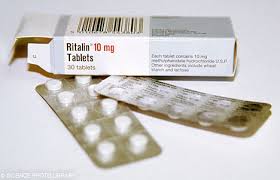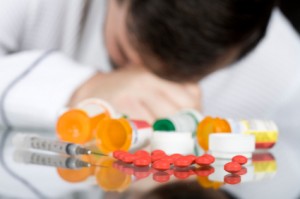Does Your Child Need Stimulant Addiction Treatment?
Prescription stimulants are still some of the most trusted treatment options for ADHD, which often has an onset of symptoms around seven years old. As stated by the National Institute on Drug Abuse, “According to the U.S. Centers for Disease Control and Prevention, as of 2011, 11 percent of people ages 4-17 have been diagnosed with ADHD,” and it is very common for children and adolescents between these ages to be on stimulant medication to help correct this problem.
While these drugs can be very helpful for the purpose of allowing individuals with ADHD to better focus on the task ahead of them, to remain calm and still, and to better control their actions, it is important to be aware of the possibility of stimulant abuse in your child and to know that it is never too early to intervene in this behavior with stimulant addiction treatment.
Is My Child Abusing Their Stimulant Medication?

Your child may act irritable if addicted to stimulants.
Many children do abuse their stimulant prescriptions for a number of reasons, and because these drugs can cause serious side effects that come on very quickly as dosages increase, addiction treatment is helpful even early on. Children and teens may abuse stimulants for a number of reasons, including:
- To perform better in school
- To make socializing easier
- To get high
- To fit in
- To stay up late
- To be able to participate in certain activities (playing games, being online, etc.) longer
The longer an individual is able to abuse these drugs without intervention, the more dangerous it becomes for them. However, it is usually easy to tell if your child is abusing stimulants, as their behavior will change drastically. They will likely use the drugs in a binge-crash pattern, becoming very awake, talkative, and restless for a long period of time before crashing, which causes them to sleep for hours on end or become depressed. The cycle will then begin again.
In addition, if they are abusing their stimulant medication, your child will also show these signs:
- A decrease in appetite
- Weight loss
- Euphoria
- Increased activity, alertness, and energy
- Increased body temperature
- Strange behavior (hostility, paranoia, nervousness, irritability)
- Nausea
- Tremors
- Stealing or hoarding prescription drugs
- Crushing and snorting the medication
Some of these issues can occur if an individual merely takes the medication as prescribed, but euphoria and several other severe behavioral changes are direct effects of high stimulant dose abuse. When many of these symptoms persist together, it is likely that your child is abusing their medication and should receive treatment.
How Do I Know My Child Needs Treatment for Stimulant Abuse?
If you notice these changes in your child’s physical and mental states, you should consider the option of treatment. According to the Center for Substance Abuse Research, “Drug addiction becomes a risk when prescription amphetamines [and other stimulants] are consumed at doses higher than those prescribed for medical treatment,” and because this result can occur so quickly, it is best to prevent it, if possible, with treatment. If your child has already become addicted to stimulants, they must also attend treatment as quickly as possible.
Do you have questions about the specific treatment options available to you and your child or teen for stimulant addiction? Call 800-605-6597 Who Answers? today. We can help.



